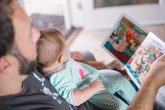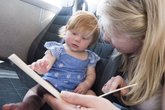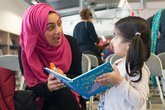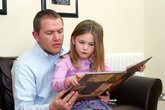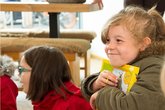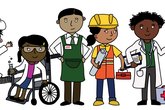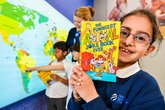Using your pack - tips and activities

As a parent you can make all the difference to your child’s communication skills. Helping your child learn to communicate will help them develop good relationships, do well at school and be confident and happy.
Check out these ideas for fun activities you can do with your baby and child as they grow, to help your children develop their skills.
We've also suggested fun activities for you to try on Words for Life for each age group.
Baby to 3
You can encourage your baby to develop their language skills from the day they are born.
Talking from day one and listening to your baby respond will help the two of you get to know each other and give your child a great start to communication.
Age 3 to 5
Your child will love it if you can spend time talking and reading with them. Ask them what they have enjoyed doing during the day or ask them questions about a book you have read together.
You could join the library together - it’s a great way to get reading and it’s free! Or you could visit your local book shop to choose a book together.
Age 5 to 7
You can help your child to learn just by playing games with them.
Can they guess the animal you’re describing from a few clues? You could also write a shopping list together and get your child to tick off the items as you shop. Or you could play a game of opposites – you say “hot” or “funny” and see what response you get. Or read a familiar story and chat about it.
Age 7 to 11
Spend time talking to your child about what they are studying at school.
You could work with them to make lists of words for their school topics and use a dictionary together to find out their meanings. Get your child to make up a story to tell you and other family members, especially younger brothers or sisters. Or talk together about the books your child is reading or the TV programmes they are watching.

